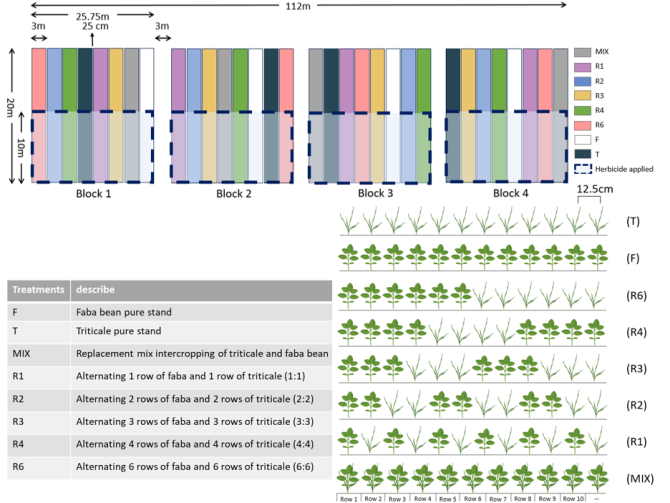
Project
Effects of spatial arrangement of intercropping on weed suppression
This project aims to explore how intercropping spatial arrangement influences weed suppressive and yielding ability of crops. A field experiment with varying mixing intensities of two crops will be conducted in WUR and data will be collected throughout the growing season.
Project description
Intercropping is an agricultural practice of cultivating two or more crop species simultaneously on the same piece of land during a growing season. Intercropping is widely used due to its associated benefits in crop production and biodiversity services. Additionally, intercrops have shown an above average level of weed suppression. Recent research has shown that this enhanced weed suppression is merely due to the selection effect, whereby the stronger weed suppressive species is more than proportional responsible for the weed suppression of the intercrop. For example, in a cereal-legume intercropping system, the cereal is usually the most weed-suppressive species, making the weed suppression of this intercropping system closely resembling that of the cereal sole crop. For the selection effect to come to expression, a close interaction between the two crop species is required. However, close interaction might also result in the weaker
suppressive crop species being suppressed. Therefore, this study is aimed at
establishing the implications of the intensity of mixing for weed suppressive
and yielding ability of the two component species.
Objectives and methods
In this study, a triticale-Faba bean intercropping system is used. The intensity of mixing is regulated by growing both crops in plots of 3 m wide with alternating strips of both species. Depending on treatments, each strip is composed of one up to six rows of a crop species. Throughout the growing season the development of pure stands and intercrops will be monitored, by measuring light interception and soil cover. Three periodic harvests will be conducted to determine weed and crop biomass.
Required skills
Skills/knowledge in performing field experiments, basic statistical skills, knowledge of weed ecology and intercropping.
Period
1 March 2024 until 1 September 2024
Location
Unifarm, Wageningen University & Research
